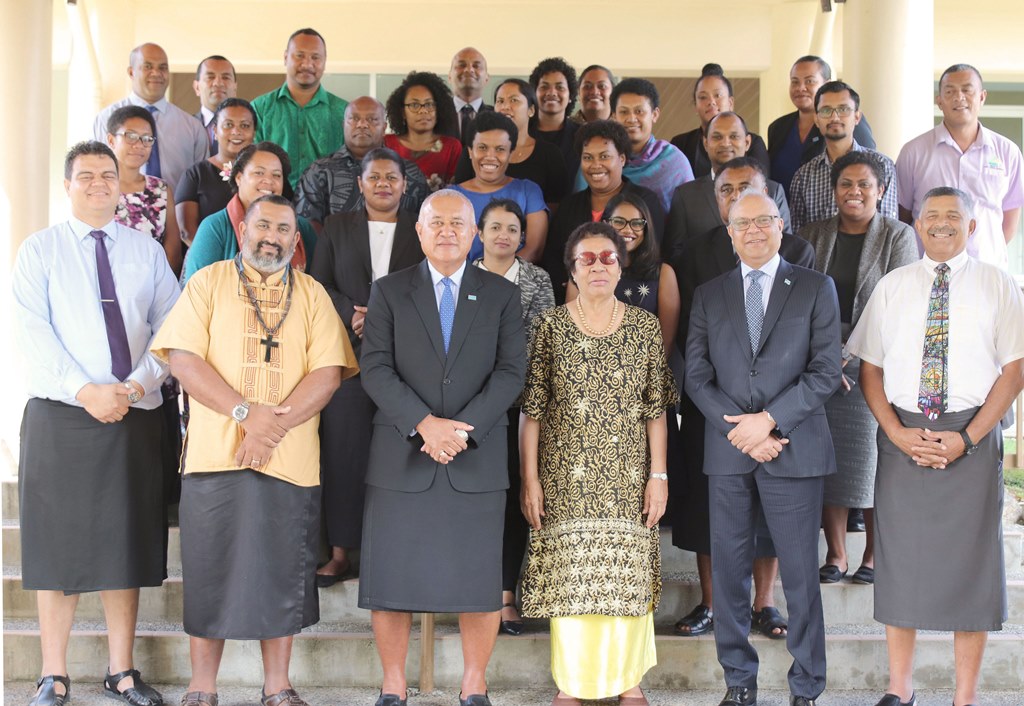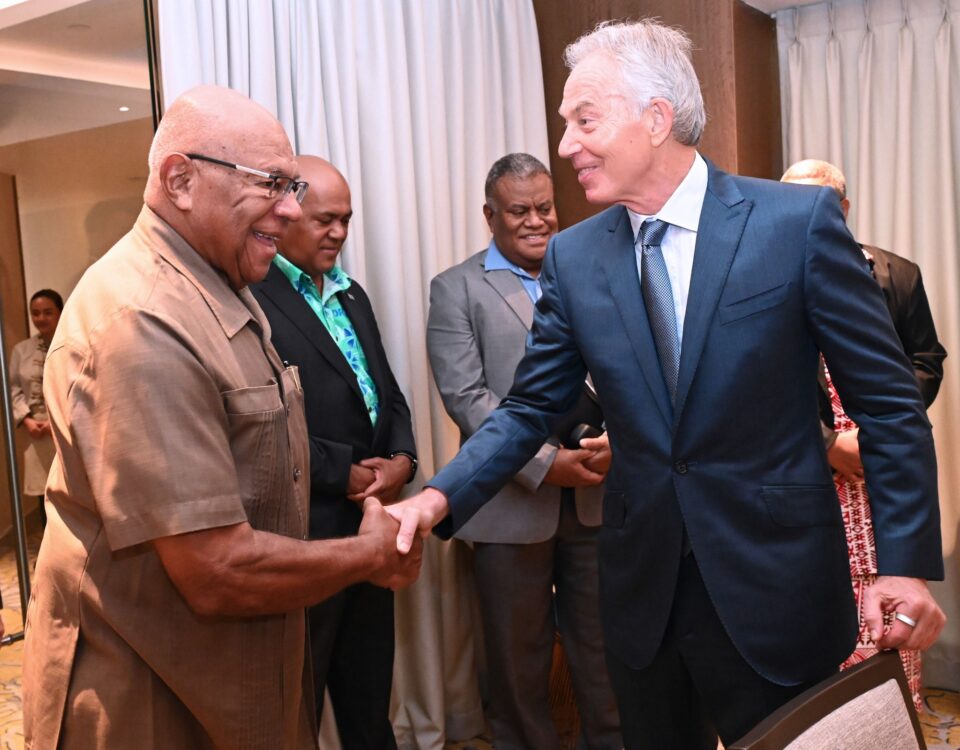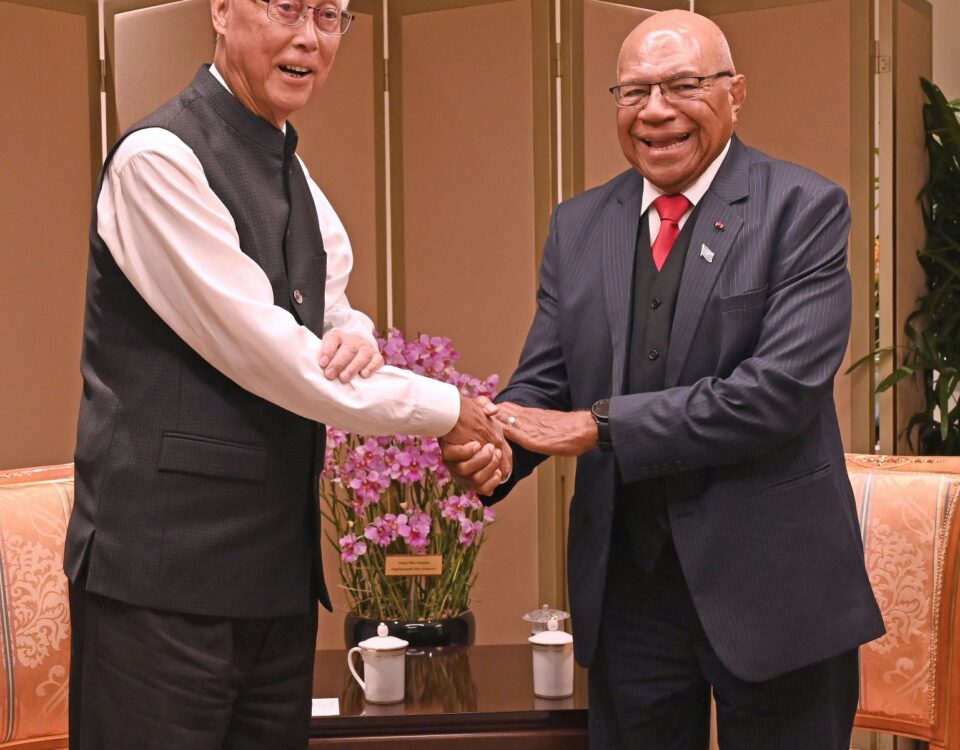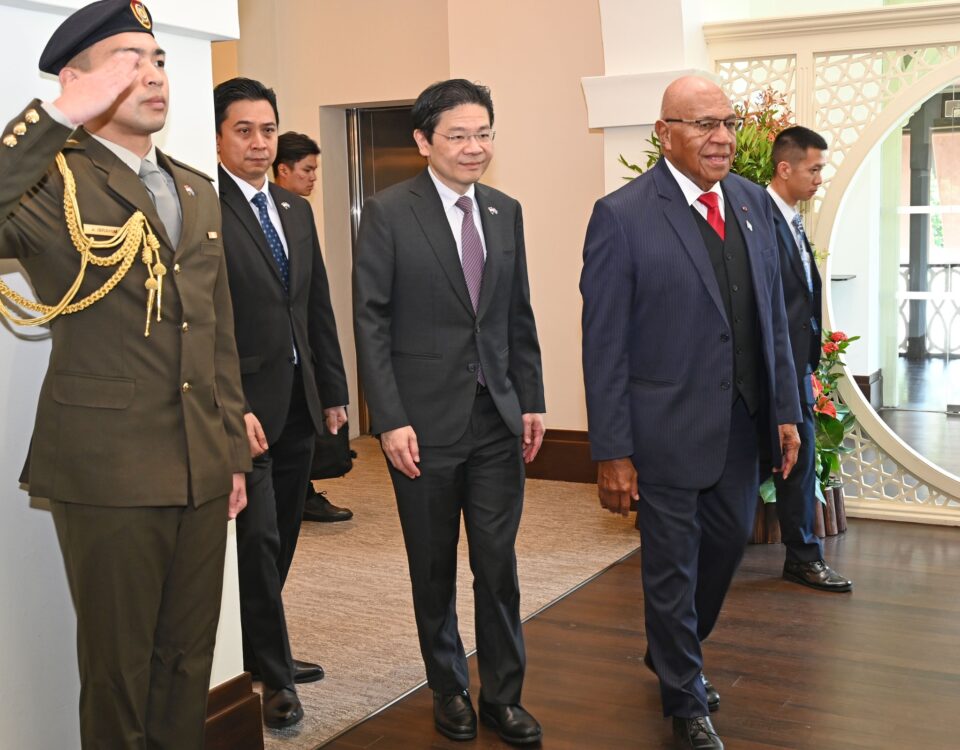
Students Benefit through Fiji-Georgia Collaborations
11/03/2019
Fiji participates at International Women’s Day for the International Labour Office
12/03/2019Published On: 12/03/2019
Government has adopted a collaborative approach by partnering with the Non-Government agencies and the business sector in the lead up to the African Carribbean and Pacific (ACP) group of states and the European Union successor agreement known as the Post Cotonou Partnership Agreement.
The two days consultation workshop known as, “Negotiations of the Successor Agreement to the Cotonou Partnership Agreement,” was organised last week in Suva by the Ministry of Foreign Affairs and was facilitated by the Fiji’s Ambassador to Brussels, Mr Deo Saran.
Signed in 2000, the Cotonou Partnership Agreement has been the framework for cooperative development and relation between the ACP states and the EU. The now expired agreement covered 3 key pillars of cooperation namely, development cooperation, political cooperation and economic and trade cooperation. Fiji’s own development with the EU is largely derived from this agreement.
As a member of the ACP and through its Embassy in Brussels, Fiji has been part of the negotiation process in Brussels for the new successor agreement and had ongoing consultations with the Fijian Government agencies and the Non-State agencies to update them on this process and how the negotiations will affect the various sectors in Fiji that they serve and their own input and recommendations into the process.
Permanent Secretary for Foreign Affairs Major General (Ret’d) Ioane Naivalurua while officially opening the workshop said it’s an innovative platform for the agencies to exchange of information, ideas and experiences to effectively advance Fiji’s interests in the impending negotiations.
“European Union is and remains an important partner and friend to Fiji and the Pacific region. Fiji has and continues to benefit, from its longstanding relationship with the European Union, as well as bilaterally with its member states. The 2020 Cotonou Agreement offers us an opportunity to renew and reinvigorate our relations with the EU in line with our current and future development priorities.
“The principal objective of the post-Cotonou Agreement for the ACP is for it to contribute to the attainment of sustainable development in all ACP countries in line with Agenda 2030 and the SDGs. It is our collective intention to achieve this through a strengthened and deepened political and economic partnership with the EU and making the ACP Group a more effective global player,” PS Naivalurua said.
It was highlighted that Fiji’s development cooperation with the European Union is principally guided by the Cotonou Partnership Agreement under which Fiji benefits in three major ways.
Firstly at bilateral level through the National Indicative Programme, a budget support of EUR 28 million made available to Fiji for the 2014-2020 period. Secondly at the Pacific regional level, under the Regional Indicative Programme which has an allocation of EUR 166 million and thirdly through the intra ACP cooperation, which provides assistance for various technical assistance programmes of EUR 3.4 billion for African Carribbean and Pacific Group of States.
Fijian participants at the workshop have committed to working more closely to ensure Fiji’s position in regards to the ACP-EU negotiations is well informed and discussed prior to its transmission to Fiji’s Mission in Brussels.






